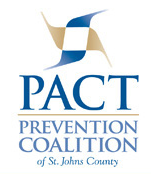Tag Archive: laws

Do You Know the Law?
December 10, 2010
Do you know what is considered to be legal verses illegal? Do you know what the consequences are if you break the law? Is it a fine, jail time or some other penalty? Many people get so busy with their daily lives that they don’t keep up-to-date on new laws or share with family and friends their knowledge of the laws that they are familiar with. Although sometimes, people innocently think they are sharing information, they may unknowingly share information that is false or outdated.
Ignorance of the law is not a justifiable excuse for breaking the law. In so many situations, it is easy to react without considering the consequences. Learning about the laws in your state will not only help you to be more aware personally, the knowledge you gain can be shared with family and friends to help prevent negative situations from occurring.
Fortunately, several groups of civic minded community members are collaborating together to help educate the public on the laws and consequences in their community. These groups come from the sectors of law enforcement, judicial, education, prevention, and treatment and include agencies, services and advocates.
One such group is PACT Prevention Coalition of St. Johns County. The coalition is comprised of groups of people from diverse disciplines in the community including members who represent: youth, parents, education, business, government, faith-based, media, law enforcement, substance abuse/mental health providers, youth serving agencies, healthcare, civic/volunteer groups, and community residents. The goal of these coalitions is to create safe, healthy and drug-free communities and in turn, making them better places to live. They strengthen the community and its members with technical assistance and training, public policy, media strategies and marketing programs, conferences and special events. Heidi Matheny, Coalition Coordinator for PACT Prevention Coalition is currently compiling a booklet to be given out at the local high schools and colleges. Heidi said ”We wanted to enable and encourage youth to make empowered decisions by taking the time to know and understand the laws while weighing the consequences of their behaviors. This booklet is also intended as a tool for parents.”
The booklet is going to print and the PACT Prevention Coalition is looking to distribute 30,000 copies from this first printing.
Some items that are covered include:
- Crime Defined
- Principal Theory
- Alcohol
- Tobacco
- Parties
- Computer Crimes
- Mandatory Consequences
Many others topics are also included such as potential future obstacles and local resources to contact.
Take time to check in your community to see if this type information is available. In St. Johns County you can go to the website at www.pactprevention.org, click the contact link and request your copy. Join other civic mind people to help make our communities the best they can be.
How Parents Can Enforce Graduated Driver Licensing Laws at Home
March 26, 2009
Parents typically feel ambivalent when their teens receive their driver’s licenses. They appreciate the freedom from being their teen’s sole source of transportation, but they worry that their teens won’t be able to handle the corresponding freedom of being behind the wheel on their own. In most states, teens’ freedom is limited by Graduated Driver Licensing (GDL) laws. But many parents are unaware of these laws or, if they are aware of them, fail to implement them as house rules.
This is a mistake. Enforcing GDL laws as house rules is an excellent tool for parents, who have the support of an existing law, the need for which and the efficacy of which is fully supported by research. Enforcement of the law by the police, while somewhat irregular in some states, is a very real possibility and could result in legal consequences for the teen. This gives parents additional support from an outside source when enforcing the law in their own households.
The first step in implementing your state’s GDL law is to become familiar with it. The law is typically detailed in the first or second chapter of the driver handbook. Many states post their driver handbooks online. You can also find information on GDL laws at your state’s Department of Motor Vehicles or Department of Public Safety website. Once you locate the information, save or bookmark it for future reference. GDL laws change as teens mature and gain experience (the “graduated” in Graduated Driver Licensing).
The next step is to help your teen understand the importance of following GDL laws. Begin a dialogue with your teen before she or he even has a learner’s permit. Ask your teen to tell you why she or he thinks GDL laws exist. This helps your teen think and allows them to educate themselves about the process. Make sure your teen understands that GDL laws exist not only to protect teens from themselves, but to protect them from other teens. Your teen needs to follow GDL laws whether she or he is the driver or a passenger. Remind your teen that GDL laws become less stringent as the teen demonstrates responsible driving behavior – it’s not just about having another birthday.
Next, incorporate your state’s GDL laws into your house rules. For example, newly licensed drivers are typically restricted from driving during certain hours. You can ensure that your teen obeys the law by integrating these time limits into your teen’s curfew.
Finally, establish penalties for violating the GDL law or receiving a traffic ticket, whether the violation is for disobeying the GDL law or another offense. Be clear about the penalties from the beginning and relate them to driving by withdrawing driving privileges or enforcing new limits on driving. Help your teen understand all the ramifications of receiving a ticket, such as points on the license, fines, insurance increases, and failure to achieve the next stage in the GDL process.
Enforcing the GDL law in your household is a valuable tool that will help ensure your teen’s safety behind the wheel.
